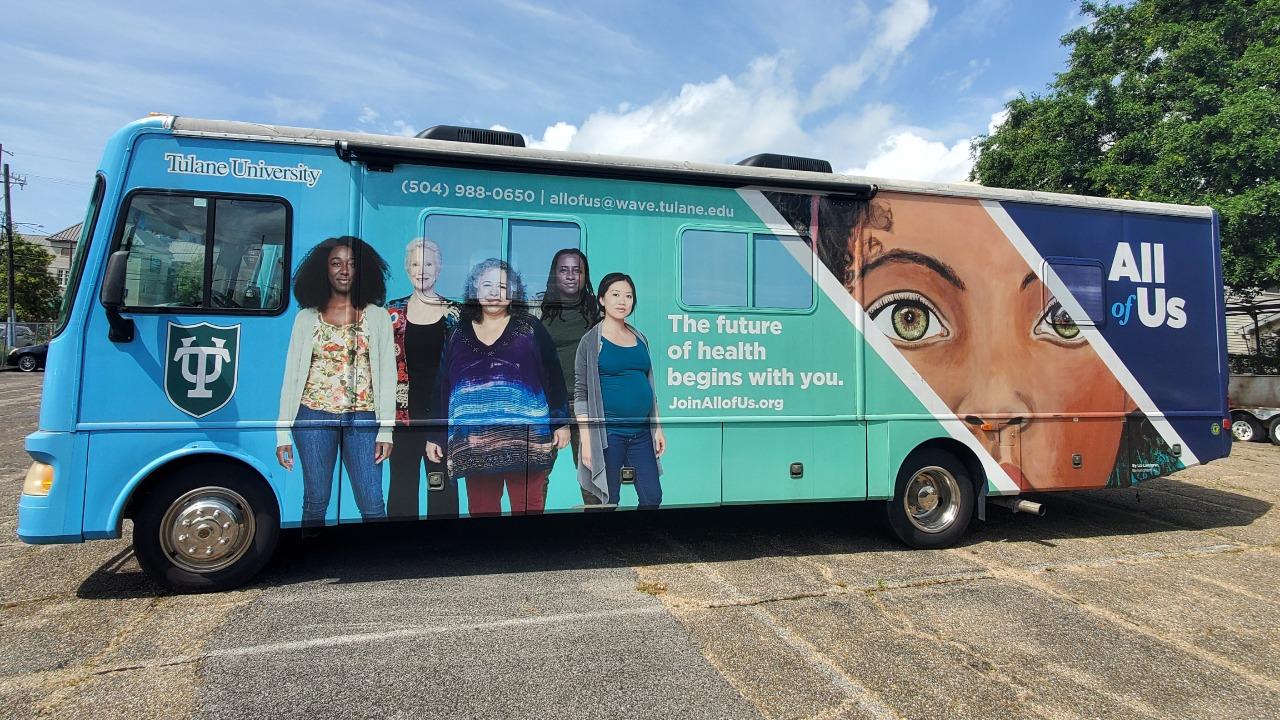Clinical Translational Unit growing to support developing research at Tulane
A new bus will be rolling to area senior living facilities soon to study the effectiveness of an RSV vaccine for seniors. The vaccine developed by Janssen is in Phase 3 clinical trials, and Tulane University School of Medicine is one of the sites testing its efficacy, safety and immunogenicity. The Tulane Clinical Translational Unit (CTU) is the local lead on the study dubbed “EVERGREEN,” which is only one of several innovative studies being coordinated by the CTU.
“RSV can lead to serious illness, hospitalization and even death in seniors, but a lot of people aren’t aware that it’s a problem for older folks,” said Roberta McDuffie, director of clinical research. “We’re taking the bus to senior living facilities, first to educate people about RSV - and then to offer them this vaccine study.”
The bus is the second vehicle in the CTU’s expanding arsenal of resources. The CTU also opened a research center for outpatient studies of COVID-19, which includes separate entrances and rooms for COVID positive and COVID negative patients. The CTU currently has between 40 and 50 staff members and continues to add more staff to help conduct the studies, recruit new participants and provide regulatory support.
The CTU’s original bus, set up for the National Institutes of Health’s All of US study, will soon hit the road and bring the study to people and populations who aren’t able to come to the CTU’s facility in downtown New Orleans. The nationwide program has the goal of recruiting one million or more people, who are willing to share health data through methods including surveys and electronic health records. The study gives participants insight into their genetic ancestry and traits, their risk for certain hereditary health conditions and how their body might react to certain medicines. As the largest study currently being conducted at the CTU, the team currently has 2,273 patients consented and 2,042 core participants.
Many of the studies conducted through the CTU give participants access to medical care they might not otherwise get, including MRIs and CAT scans, at no cost to the participant. The Tulane CTU maintains a Volunteer Research Registry for anyone interested in participating in upcoming studies and it only takes a few minutes to register online. The registry has nearly 1,500 volunteers interested in becoming study participants.
The CTU is currently supporting 69 protocols - with an additional 11 in the pipeline - in epidemiology, genetics, general medicine, pediatrics, behavioral sciences, cancer, cardiovascular disease, endocrinology, and renal disease, as well as protocols related to other areas of research including bioengineering.
The CTU maintains a Community Advisory Board (CAB), whose members are all from the greater New Orleans Community. The CAB keeps researchers in touch with the community, provides advice to researchers regarding recruitment of research participants, design of advertising materials and advice on many other areas of research conduct.
“Now more than ever, research is vital to the School of Medicine’s mission of improving human health and fostering healthy communities through discovery and translation of the best science into clinical practice,” said Patrick Delafontaine, MD, Executive Dean and Professor of Medicine, Pharmacology and Physiology. “We couldn’t do this without the CTU.”

